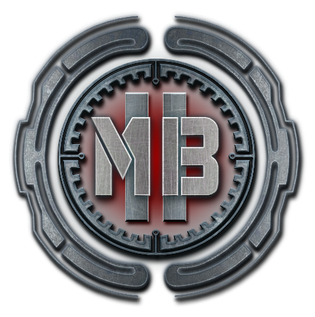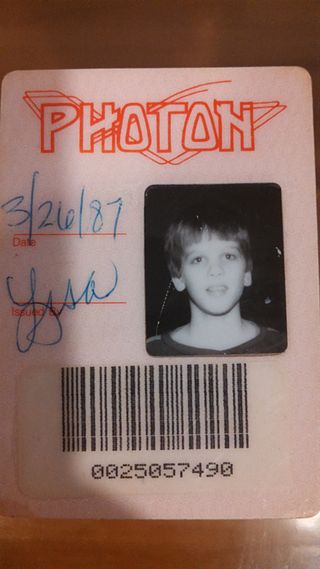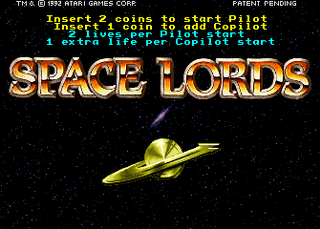
Quake is a first-person shooter game developed by id Software and published by GT Interactive. The first game in the Quake series, it was originally released for MS-DOS, Microsoft Windows, and Linux in 1996, followed by Mac OS and Sega Saturn in 1997 and Nintendo 64 in 1998.

Rise of the Triad: Dark War is a first-person shooter video game, developed and published by Apogee Software in 1995. The player can choose to play as one of five different characters, each bearing unique attributes such as speed and endurance. The game's story follows these five characters who have been sent to investigate a deadly cult, and soon become aware of a deadly plot to destroy a nearby city. A remake was designed by Interceptor Entertainment and released by Apogee Games in 2013. The shareware version of the game is titled Rise of the Triad: The HUNT Begins.
Urban Terror is a freeware multiplayer first-person shooter video game developed by FrozenSand. Originally a total conversion of id Software's Quake III Arena, FrozenSand released Urban Terror as a free standalone game in 2007 utilizing ioquake3 as the game engine. While the game engine is licensed under the open-source GPL, Urban Terror's game code is closed source and its assets are freeware but not open content.

Tribes: Vengeance is a science fiction first-person shooter video game developed by Irrational Games and released by Vivendi Universal Games in October 2004. It was built on an enhanced version of the Unreal Engine 2.5, which Irrational Games called the Vengeance engine. Part of the Tribes series, in addition to its multiplayer network maps, Vengeance includes a complete single-player campaign.

Star Wars is a first-person rail shooter designed by Mike Hally and released as an arcade video game in 1983 by Atari, Inc. It uses 3D color vector graphics to simulate the assault on the Death Star from the 1977 film Star Wars. There are three connected gameplay sequences: combat against TIE fighters in space, flying across the surface of the Death Star, and the final trench run. The sequence repeats with added complications and the Death Star regenerating for each. The player's X-Wing fighter has a shield which only protects against damage a certain number of times, then the next hit ends the game. Speech synthesis emulates actors from the film.

Movie Battles II (MBII) is a team-based multiplayer mod for the 2003 third and first-person shooter game Star Wars Jedi Knight: Jedi Academy. It is a successor of the Movie Battles mod for Star Wars Jedi Knight II: Jedi Outcast. The primary purpose of the mod is to allow players to experience setpiece battle scenes from the Star Wars films and the Star Wars expanded universe. The gameplay is similar to that of the base game, but builds upon it with several new elements. The mod has been lauded for providing one of the best lightsaber combat experiences out of any Star Wars game.

Photon was the name of the first commercial lasertag arenas. The company also came out with a home lasertag game, and there were various media tie-ins: a TV show also called Photon and a series of novels by Peter David.

Fired Up is a vehicular combat game available on the PlayStation Portable. The game features a single-player campaign and a multiplayer mode which supports up to eight players. The game features demos of Wipeout Pure and MediEvil: Resurrection. Fired Up also features game sharing and downloadable content. It is derived from the 2002 PlayStation 2 online game Hardware: Online Arena.

Sub-Terrania is a 1994 multidirectional shooter developed by Danish studio Zyrinx and published by Sega for the Mega Drive/Genesis. The game takes place in the future, where a deep-space mining colony has been invaded by an unknown alien race. The player assumes the role of a lone pilot who must defeat the alien forces and rescue the trapped miners. During the course of the game, the player controls a rotatable craft with thrusters that is constantly subject to gravity and the craft's inertia. Using the ship's "rotate-and-thrust" capabilities, the players must aim, shoot, dodge and carefully maneuver their way through the hazardous landscape while constantly taking gravity and refueling needs into account.

Nerf Arena Blast is a first-person shooter developed by Visionary Media, Inc. and published by Hasbro Interactive, released under their Atari Interactive label. The game, based on Nerf, was touted as a "family-friendly version of multiplayer combat games like Quake III: Arena and Unreal Tournament", and was supported by Hasbro Interactive until that company gave its rights and properties over to Infogrames. The cutscenes were animated by Mondo Media alongside them doing the in-game art.

Mars Matrix: Hyper Solid Shooting, or simply Mars Matrix, is a vertically scrolling shooter arcade game developed by Takumi and released in 2000. The game was published by Capcom and run on their CPS-2 arcade system board. Mars Matrix was later ported to the Dreamcast video game console in 2001. The arcade version uses a horizontally aligned monitor, despite being a vertically scrolling game.
DeFRaG is a free software modification for id Software's first-person shooter computer game Quake III Arena (Q3A). The mod is dedicated to player movements and trickjumping. It aims at providing a platform for self-training, competition, online tricking, machinima making, and trickjumping. Hence it constitutes an exception among other Q3A mods.

Star Command: Revolution is a real-time strategy game developed by Metropolis Digital, Inc. and published by GT Interactive. It was originally released in 1997 for MS-DOS, and was re-released in 1998 for Microsoft Windows under the title Star Command Deluxe. This re-release was overshadowed by its contemporary, Starcraft. A sequel, Star Command X: Armada, is hinted at upon successful completion of the campaign mode, but it was never produced. Instead, the developer released the similarly named but unrelated game Armada on November 26, 1999.

Kiloblaster is a fixed shooter video game trilogy written by Allen Pilgrim and published by Epic MegaGames in 1992 for IBM PC compatibles. Based on Namco's Galaxian from 1979, there are a few differences such as allowing greater player movement, much faster enemy movement, power-ups, enemies that take more than one hit, and allies to assist in battle.

Space Lords is a video game released in arcades by Atari Games in 1992. It is a first-person perspective space combat video game.
Heavy Unit is a horizontally scrolling shooter arcade video game developed by Kaneko and published by Taito in 1988. It was ported to the PC Engine by Taito and was released on December 22, 1989. There was also a Mega Drive port by Toho entitled "Heavy Unit: Mega Drive Special" released on December 26, 1990. The player takes control of a star ship that can transform into a mecha by obtaining a specific type of power up.

Challenge ProMode Arena is a freeware modification for id Software's first-person shooter computer game Quake III Arena (Q3A). CPMA includes modified gameplays that feature air-control, rebalanced weapons, instant weapon switching and additional jumping techniques. It also supports the unmodified vanilla Quake III (VQ3) physics, multi-view GameTV and demos, enhanced bots artificial intelligence, new maps, highly customisable HUD and many other features.

Mechwarrior: Living Legends is a free, fan-created multiplayer-only game based in the BattleTech universe - originally a total-conversion mod for Crysis, it's since become stand-alone - running on Crysis Wars, and using CryEngine 2 as its engine. It's one of the few mods based on the BattleTech universe to have been sanctioned by Microsoft—who currently owns the rights to the Mechwarrior video-game franchise—and additionally received pre-SDK support and sanctioning directly from Crytek, producers of the games' engine. On December 26, 2009, an open beta was released via BitTorrent and other distribution methods. Because the project changes the play-style and feel of the game it is originally based on so completely as to be unrecognizable in comparison, it is billed as a "full-conversion" mod, since little to no trace of the original game's art or play-style exists any longer within MW:LL. It was created by American developer Wandering Samurai Studios.

Aperture Tag: The Paint Gun Testing Initiative is a 2014 puzzle-platform game developed and published by the Aperture Tag Team for Windows and OS X. Unlike the official Portal series, the gameplay revolves around a paint gun rather than a portal gun, that fires two kinds of gel, one of which gives the player a jump boost and the other a speed boost. The game takes place after Portal 2 and the player is guided by a "personality core" Nigel to complete puzzles in the Aperture Science Enrichment Center.
















